|
Again, apologies for the intermittent posts these days as I wade through preproduction on my latest film. I'll be back to a regular posting schedule on March 5. One year ago last week, I packed my bag with rolls of film and a lens or two, boarding the bus downtown. Traveling through the tunnel, things seemed almost normal. Just an extra sign here, a dollop of pink hats there. Only when I rose above did I see it, an ocean of pink, approachable, drifting at walking speed. Had I ever seen so many people so quiet? Unbeknownst, I had happened upon the silent portion of the march. The visual and aural impact was remarkable. The human organism as collective, stretching out as far as the eye could see, but somehow, incredibly, hushed. You heard a thousand jackets ruffling, swishing jeans, the readjusting grip of hands on signs. We usually only see details; now you could hear them. And what to make of the feeling? There are events where people come together almost in spite of each other; this was different. It had a potency to it, a strange conflation of urgency and enthusiasm that shouldn't make sense, but did. In our house, women and minorities were always celebrated, not just because we fit into those descriptive terms: it simply made sense. Violence against women, from physical attacks to the more insidious arena of sublimation of agency and identity, was always abhorred. The recent fourth wave has felt, among other things, like the world catching up. Didn't these notions always make sense? In what way could they possibly be controversial? In my little cocoon, I thought we all were feminists. I was a child, and children know what side of the line to stand on. They don't hate or discriminate. We used to be so good at this. I don't wish to discount others' opinions, but I will share what I believe: the fight for women's rights is the fight for equal rights.*** Equality is additive; you don't lose something when others have a chance to prosper and be heard. There's nothing to be scared of here. Everyone benefits. What a crowd, I thought, slipping in with my camera. Why the turnout? Were we atoning for the sins of not voting? One of the traps of modern life is complacency. With this much stimuli, this much speed, you get swept up in the current. People don't form opinions nowadays; they get them from reviews online, op-eds and soundbites. We don't live life anymore; we document it. Urban life is too fast to experience, only to record. We jot it down with the latest technology, hoping for a mythical later time when we can finally review it all. Would that we lived so long. I don't have the answers to why we forgot to vote– I voted– but I suspect it has something to do with this pace and texture, perhaps similar to how the youth vote never materializes in any meaningful way: you get swept up in the distracted, cluttered wonder that is young adult life. Yes, we could ask the question, for which there is no good answer: where were all these people when it mattered? A lot of lives would be very different. But at some point getting angry at the past loses value. I realized there was something I could learn from those marching beside me. The toddler with a rainbow flag; the vet with a clever sign.* The women; oh, the women! The worst political sin in many generations had just been committed, harsh and regressive enough to make certain past warmongering presidents look downright lovable by comparison... and these folks around me were the victims of those sins. These were the people who had, in the blip of a moment, been reduced to second-class citizens. How did we live now? What did today feel like? Downright celebratory. The most surprising thing about the Women's March is how joyful it was. It'll hardly make sense on paper, but I'll try anyway. You really had to be there. This was the largest and most important march since the invention of the internet, not to mention the numerically largest protest in U.S. history, and the first time 4.6 to 5 million people worldwide engaged in the same specific activity at the same time on all seven continents, and I don't mean basic activities like eating or sleeping. That many people felt that strongly about the worldview reflected in a particular set of attitudes; so strongly they weren't going to let certain moral truths** be shunted aside. We were a crowd in the millions who believed in something, and it was basic: You should be nice to other people. All are equal, and should be treated accordingly. Fairly. What I didn't expect is how much joy being around people who think that causes. I felt so safe. Had I ever felt this safe, among thousands? This crowd. All genders, ages, races, orientations, income levels. Everybody could be who they were, could trust in the humanity of those next to them. We didn't have to hedge ourselves, didn't have to be concerned the person next to us thought differently. You would not be hated on in this beautiful space. Most marches you don't bring your kids to, but it made sense there were children everywhere. They get it. The truth we hope for was there, living on the smile of everyone's lips: love is additive. It burgeoned forth, snowballing, made by us. We were an air-feather-light cotton candy-happy tidal wave, and we had charged the air with the best of ourselves. That was the reason for the turnout. That was the reason I was there. It wasn't about voting. We had strong, deep-rooted values** of human decency, kindness, love. Equality. We needed to show each other, and not with a whisper, that we knew, loved... that we cared. And that we were not about to let those notions go down in the darkness. Now that is cause for celebration. *More photos from the March, Nathan-style, coming soon!
**Yes, I'm intentionally using language from the other side of the aisle here, for two reasons: I don't see the concerns of fourth-wave feminism as mere political issues. They're bigger than that. I appreciate my friends with differing sociopolitical perspectives, and don't want all my friends to think the same as me, but I hope they can understand equality as a human issue before anything else. There's no reason words like morals, virtue, family values, and so on should be co-opted by a political party. Ethics are ethics are ethics. ***What is feminism? Rebecca West wrote in 1913: "I myself have never been able to find out precisely what feminism is: I only know that people call me a feminist whenever I express sentiments that differentiate me from a doormat." From the April 27, 1895 edition of Athenaeum: "[a woman who] has in her the capacity of fighting her way back to independence." Nora, in Henrik Ibsen's 1879 A Doll's House: "Before anything else I'm a human being." Susan Faludi, 1991: "Feminism's agenda is basic: It asks that women not be forced to choose between public justice and private happiness. It asks that women be free to define themselves– instead of having their identity defined for them, time and again, by their culture and their men." A pulitzer-prize winning journalist, Faludi's book, Backlash: The Undeclared War Against American Women, is a landmark text exploring the anti-feminist backlash of the 1980s, and how political, social, and media entities were able to dismantle nearly all the progress of the previous decade, often using women themselves, by turning the language of feminism against itself and ultimately transforming "feminist" into what it remains in many circles today: a stigmatized, baggage-heavy bad word. Following what happened after first, second, and third-wave feminism, I expect a comparable backlash to occur against the current movement within the next decade or so. Just as compelling (and gigantic) is her 1999 follow-up, Stiffed: The Betrayal of the American Man, which explores why men feel emasculated all the time, and how the rhetoric of both anti-feminism (asserting men should dominate) and feminism (blaming men for culture's problems) actually imply about the same thing: that men are supposed to be in control. Except they generally don't feel that way. The book dives into how and why that is, from the impossibility of living up to post-WWII expectations of what a man is supposed to be, to the problematic "hero" concept, from which men are expected not to participate in society but rise above it, and how these unrealizable narratives manipulate and doom men in their own insidious ways, bringing as much unhappiness upon them as anyone else.
2 Comments
A year and half ago, the sight was a sorry one. A man and his son, the father ribbed in sweat, the coked-out shameless shudder of withdrawal, where all the world is invisible, but for the next fix. He was lighting up his crack pipe right there, big as life in the front seats. That story continues here.
There's a certain streak of behavior I witness out here that tends not to work in the favor of longevity. You see the same activity, sure, but not the same faces; Seattle had 332 fatality overdoses last year, and those souls get wiped aside for– by– others, new kids on the habit, convinced they're unassailable. But it's a game of diminishing returns if there ever was one. Unless you're Keith Richards, William S. Burroughs, or Denise, you tend to disappear after a while. Six seasons later I'm on the other side of town, watching a guy lift his groceries out of a shopping cart. He knows carts can't go on buses, and is scrambling to get his bags in hand for the ride. I should help him. I love helping. Who was it who said, "the best way to cheer yourself is to try to cheer somebody else up?"* Jumping out of my seat, I ask, "hey, you need some help?" "Aw naw, I got it." He was the epitome of Joe Average in terms of dress– another neighborhood fella in denim and sweats, mid-forties with the 'fro cropped close, necklace and sneakers on a casual weeknight. I glanced at his shopping cart. All that remained was a bright green twelve-pack of beer. In my bus uniform I paused. I grinned at him and quipped, "yeah, I guess I probably shouldn't be seen with the Heineken!" "Ha!" He boarded in good spirits, and the ride continued without incident. The following day he showed up again, easy, the lucid smile, mild-mannered: "aww, hey!" "Heeeey, two days in a row!" "You're a good dude," he said, "God bless you!" In a fifth of a second I figured it out. That's who that was. I almost didn't recognize him, he looked so normal. His life, his year, his struggles and stories and setbacks and triumphs… all of it had to have happened, because here he was now, able to speak, able to focus his eyes. Less than a second had passed, but I felt the tidal wave of confirmation hit me, and the best I could do was stammer out in response, "you too, my guy, you too!" Walker Percy once posited** that when the same or similar incident happens twice, everything that's transpired in the interim can be evinced by the subtle differences between the two events. There was no crack pipe tonight, no youthful accomplice, no signs of withdrawal. He was whole. It's a tough job, this life, and a tougher one when it looks like you're doomed to be one of those 332 deaths. Tough job walking down the street. Tough job going out for groceries. But he did it. Did he know I knew? Did anyone else tonight know, what a hero he was? They didn't know. No one knew. He was just some guy getting on with paper towels and a bag of TV dinners. But I wanted to jump for joy. Rich, coursing respect flooded my veins, deep admiration shaking my head with pride for my fellow man. This is possible. It can be done. The difference between those bus rides a year and a half ago and now represented something colossal. He had made it to the summit. Congratulations, my friend. You hero. I learn from your strength. --- *Mark Twain. **The Moviegoer, first published 1961. "I been on your bus once before. You were hella cool for some reason," he mused, fingering in a few more coins at the farebox. The confusion in his second sentence made me laugh. He frowned, trying to figure it out: what on earth had made this driver so "hella cool" last time, after all?
"Aw thanks man," I said. "I try to keep it light, keep it positive." I was sticking to boilerplate lines because I couldn't tell if he was stable. Keep it on an even keel. His dress sense was harmless enough, following the dictates of low-income stomping grounds all across America: basically, wear what the cool kids had on twenty years ago. The nineties urban youth look, oversized clothing with a touch of jailhouse sag, chain necklace and untied skaters that only stay on if you swagger. On certain streets, you dress so you're taken seriously by those with no sense of fashion upkeep whatsoever. They won't warm to an Andre 3000 straw boater, Kanye West's tight jeans, or A$ap Rocky's tailored white suit and black turtleneck just because People magazine does. When there are guys standing on both sides of an alley entrance, it doesn't matter what color you are: you don't want to look like you're waiting to hear back from Exeter College. The better to go with your older brother's unwashed jeans and something with a Sonics logo on it. Which is what our friend had down to a tee, and that's fine by me. But there was something besides, an erraticism in his movements, a sudden jolt in his step, not to mention his hidden eyes; sunglasses after midnight aren't exactly the reassurance of sound mind I'm looking for. Nevertheless, he responded to my comment above with an amicable "das wassup." Ninety-nine times out of a hundred, it's better to engage. One time out of a hundred, it's better to say nothing at all, and as a bus driver you've got about a fourth of a second to make that call. I made the call, and the call I made was, ignore the sunglasses. This guy's okay. I said, "helps everyone, you know? Not gonna hurt to put some love out there." "True dat," he replied. "There's a lot of happiness out here." "Some of these guys got one arm, one leg… if they can be happy, I got no excuse!" "Preach! I feel tha same. Ah try to pay attention to all the happiness, think of the things that keep me goin'. In this crazy worl', we got to stay happy. We got to." "Yeah," I said, sighing, thinking on all my own stresses, those of others, the politics, the tightening purses, the property tax and rent rates… have you noticed how real estate has surpassed weather as Seattle's dominant city-wide conversation? "Thank you," I breathed, adding after noticing his puzzled look: "for the reminder!" "Ha!" "I need that sometimes!" "Aw, come on," he exclaimed. "You don't look like you got evil in you!" "I hope not!" "Ha! Like, 'I'm not a killer, but don't push me?' " "We all got a dark side, right?" "Yup yup you know it! Jus' keepin' a leash on it, like me! You have a good night!" He was more than okay. He was you and me. He was unwittingly echoing Austrian auteur Michael Haneke, who maintains any person is capable of the worst evil, given the circumstances. Our passenger was another man doing his best to focus on his better angels and cast aside the others. I'm glad I chatted with him. What awful suspicions I might have if I never chatted with the guys out here, and made all my assumptions from the descriptions in the police calls we're forwarded. The suspect is always a "twenty-year old black male wearing all black…", and I chuckle to myself every time. That describes forty percent of my ridership. They don't all rob banks. I've got twenty black twenty-somethings wearing black here, and none of them are out of breath or dragging duffel bags. They're too busy riding my bus!* An operator once asked me, "how do you deal with these guys?" He was referring to homeless people at large. I pondered for a moment before saying, "you know actually, what really ends up helping me is just talking to them. Go back there on your break, and hear their story. It gives me context." Which is why so many stories on this blog are accounts, specifically, of African-American men being civil, friendly, funny, responsible, vulnerable and kind.** In my daily exposure to diversity these moments are not exceptional; they're pretty ordinary. Actually, they're downright unremarkable, in that they happen so much more often on my bus than I'm able to put on the blog, and I hold back here simply for fear of the stories becoming woefully repetitive. But in the face of centuries of– not just mistreatment but more particularly misrepresentation– these ordinary moments still feel fresh, and I can tell my responses to the participants remain resonant. These glimmers of good treatment going both ways are still not celebrated enough. There is an opportunity to try, ever so slightly, to tip the grossly misaligned scales of perception back towards balance. For every time a call goes out saying "twenty-year old black male," I want there to be five other places people can turn to that showcase disadvantaged young men of color being nice, or maybe just boring, or even plain rude… but not criminals. I'm not the person best suited for this work, but I'm not sure that matters. It'd be a crime not to take up the opportunity, given how utterly critical it is. I have to do it. I want to do it. And it's so easy. Thanks for reading and sharing. Now more than ever, the goodwill in these stories is something that needs to be highlighted. ---- *On a more serious note, now's as good a time as any to link to these two stories if you haven't read them already: Don't Be Scared of My Friends, Part I Don't Be Scared of My Friends, Part II **A few greatest hits, if you're in the mood; longtime readers will know these stories from the "On the Street" sidebar to the right: More Than One Way Through Life: a dealer and a student clash over ideals. Future, Present, Past: a new friend and I riff together on an all-white 2, first for laughs and then seriously. Saddest Music in the World: a vet having a hard day, who probably deserved better. Hip to be Joyful: a street comedian passes on some words from the kids in back. …and a few of the deeper cuts: Appreciation: one of only a few blog stories to be purchased as its own art piece. Two boys express gratitude. It Used to Sound Like This: Devin the Man for President. Something Getting Through: the boys wave through the windows. Highwire, Lowbrow explosions: I'll never win the Nobel Prize, but this shower of foul-mouthed, good-natured praise more than makes up for it. All You Need Is: A street fellow gives me the reminder I need. From a Healthier Slant: two boys wax profane on deterministic universes. The Mighty Midnight Bus Barbecue: how the boys talk after the white folks have gone. I Like Peanuts: gift exchange, and more. I have this tendency to turn up my nose at flu shots. We all think we're unstoppable when we're younger, and while I long ago lost that claim to invincibility, vestiges of it remain, little crumbs of brash confidence that don't make sense. For me, that includes not getting flu shots. I have no memory of ever receiving one. I like to tell people that being a bus driver beefs up your immune system like nobody's business. I drove the 3/4, the main route serving the West Coast's #1 Trauma Center, for two years– and I didn't get sick. Flu shots? Who needs 'em? If I've made it this far, well....
Isn't it precisely when you're at your most confident, that the chips come tumbling down? I'm lying in bed, coughing like it's 1918. For me the flu is generally unpleasant, but not agonizing, not endless; this is different. After days in row of muscle-atrophied anguish you can start to understand how people used to die from this thing by the millions. I've never felt so weak. However. I needed to go to work, in person, to call out sick. Naturally you can do that remotely. But we're talking about a Saturday-Sunday following a holiday week that was also a pay week, aaand immediately preceding a vacation week of my own. How bad would that look? Could my flu be more poorly timed? I wanted them to know this was for real. The only problem was I was way, way, way too ill to be going outside. Do you know the feeling, where even lying still is intolerable, where each position in your sweaty, unlaundered sheets brings you no closer to comfort? Every pointless toss and turn, your nose burned by overfamiliarity with Kleenex, the constricting throat, the sheer brute torment of something as simple as swallowing... no, going outside and commuting to work was ridiculous. Out of the question. But I had to do it. Trust is difficult to earn, and harder to keep. This question of integrity mattered to me, I explained to my confidante, who'd been caring for me. She listened, confounded, as I explained further: there's also the matter of picking up my car from the mechanic. His shop is small, and I don't want to inconvenience the guy. It's just on the other side of town. Had I really outgrown the invincibility fallacy? Maybe not so much. Perhaps it's an unreasonable consideration for others' needs. I didn't want to make Tony T the Mechanic's life any harder than it needed to be. I wanted those Metro dispatchers and planners to know I wasn't burdening them for flippant reasons. Or perhaps it's more straightforward: I wasn't lying or being lazy, and resented the thought of being perceived as doing so. My companion had my best interests at heart, which made justifying all this somewhat difficult, but we set out in any event. She could see how important it– specifically the Metro dispatcher issue– was to me. The car pick-up thing definitely didn't make any sense, but I think she figured we could discuss that later. We hobbled forward. I'm usually the one who walks too quickly, but I was unable to move more than inches at a time. Eighty year-olds walk faster than this. I held on to my companion's guiding figure with both arms, clinging to stay upright. On the bus I stared forward, vacantly, unable to focus, a silent voice inside remarking on how mechanical I must've looked, how brain-dead. My mind called back a moment in junior high school, when, having ran around the entire length of Washington, D.C's Mall, from the obelisk to Lincoln and back, I collapsed on the ground, my lungs heaving with effort. A local walked past with her young son. She was a thirty-something African-American dressed in her Sunday best, and the boy was wearing a sweater and khakis. They had it together. They stopped to watch me writhe. "Now that's why you don't take drugs," she finally said. What did I look like now, to the dispatcher and nearby operators at the base? They stopped talking, let me tell you. They immediately asked after my welfare. Some of them even recognized me. Only the dispatcher didn't show surprise; maybe he's seen this sort of thing before. Me, famous for running excitedly through the base, now hobbling ten steps to a foot, touching the walls for balance, holding a plastic bag for vomit in one hand, dressed in absurd amounts of layers for once, despite this rainy day not being a cold one: jeans over sweats, coat over sweatshirt over tee over tee, with a scarf, ludicrously roomy women's coat jacket draped over my slight frame, with a massive hood entirely covering my face, and to top it all off– the ridiculous addition of polished dress shoes (hey, I didn't know I was going to get sick)! Afterwards, Tony T's shop awaited. Once again, my gracious companion suggested the reasonable course of action. Once again, I politely insisted. This fresh air actually felt kind of nice. The train ride was quiet, and the third-mile residential stroll through old South Seattle did my mental state, if not my body, good. We got the car out of there and parked it nearby. I noticed something on the bus ride back. Here was a 124, fresh with the methadone morning release group. They chatted amiably about the price of cable, driving vs. busing to West Seattle, the job market. I leaned my hooded head against the rain-spattered window pane. Nostrils clogged, my mouth hung open, and in between inhales I breathed a memory to my friend: "There's a methadone rehab clinic. Right over here. I used to drive the 522. And the first stop was. Picking up these guys. It was my first. Experience with street people." "Really." "More or less. And I remember noticing. They were the nicest people. On the whole bus." "And so it began," she laughed. "I guess!" To the extent I was able, I looked around at the surfeit of texture and weathered grit. They weren't as sick as I felt now, but you could tell they knew the grizzle on the short end of the stick. It is so much harder to be kind in a state like this, I now realized. I've never had to take a bus while half dead. There are probably people who feel like this all the time. How many ailing people have I transported, who took the Herculean effort to be decent? I look just like these tired, disenfranchised souls, I thought. Honestly, I looked worse. I'm still holding the vomit bag, for Pete's sake. I was a disaster. We were sitting in the back, but I knew I had to go up front as I exited, to thank the driver. I wanted her to feel that same gratitude I've received a thousand times over from folks much more down and out than I, whose efforts I so cherish and respect. My body began planning for the aptitude it would need to walk all the way up there. I saved up an extra breath to say it all in one go: "Thank you have a really nice day." She may not even have heard me. I could barely speak above a whisper, and she bulldozed over me with a boisterous "thank you!–" but maybe she didn't need to hear me. I was really more of an actor, after all, doing my best to pay it forward. She seemed like the sort who was already in tune with such of life's nuances, and I was glad. "We did it," I said to my caregiver, thanking her profusely. I was still clutching her frame for dear life. "I can't believe we actually did it." It won't sound like much of an achievement to anyone else: I called in sick and picked up my car on the way home. Great. But to us it was a massive, by-the-skin-of-our-teeth-successful accomplishment. How did we pull this thing off? Why did I think it was even a good idea? We gave it everything we had, for the possibly foolhardy notions of principle. It was important to me. Just remember the next time you see someone moving at a dying snail's pace, the corollary may well be you, sprinting as fast as you can. --- Also– this whole intermittent posting thing is all temporary, I promise! I'm still neck deep in film preproduction. I aim to be through it shortly, and look forward to returning to prioritizing the blog as usual. Keep checking in though, as there's always something here to chew on.... In the post below this one I describe how people can surprise you with the goodness of their quality. Sometimes it's major, thought-provoking stuff, and other times it's just a level of wit and observation you weren't expecting. Not profound, but just as pleasant.
Kevin rides a lot. He's homeless, but he's not a sleeper. He always has a destination. He has a limited wardrobe and an ungainly wheelbarrow-like stroller to which are strapped all his possessions, but the questionable odor one might expect is nowhere to be found. This guy's got it figured out. The longer I'm alive, the more I realize the degree to which a person's character and appearance today is but a surface ripple over the iceberg of their past. There's always so much more to a person, and they were never quite how they appear now. Some of my homeless friends suffer from limited education opportunities. Some others clearly finished school, but their intelligence is clouded by untreated mental health issues (like Nefarious Peripheral, whom I listened to for 45 minutes tell me about how aliens and communists relate to volcanic explosion cycles, just to stay on his good side!). Kevin's of neither stripe. He's just another smart, thoughtful guy with reasonable opinions. He listens. I'm always happy to see that familiar figure, an urban Santa positioned at the ready at the zone, blue eyes peeking out from under a weathered baseball cap, his bag of treasures in tow. He once got on my bus because the previous operator had passed him up, on the grounds that Kevin's lil' cart was a "fire hazard." I expected Kevin to be frustrated by that, and was ready to give him some space to vent it out. "Well that's super lame," I said. "Well, not really," he replied amicably, referencing his experience as a former union shop steward. "It's his prerogative to assess if it's a fire hazard, and if he says it is, well then, on his bus it is." Prerogative. I love Seattle. In the country's most educated city, even those at the class ladder's lowest rungs know their way around a dictionary. Another night he was expounding on the "new lady in his life"– a stray kitten– and pointed out that he's "never been able to divine a cat's age strictly from their appearance." Divine. When was the last time I'd thought to use it as a verb? Oh, how I love life! For months he rode my bus without saying much. Only lately do we sometimes have scattered conversations, punctuated with the silence and rhythm of the world walking on and off. Some night's it's trivia he'll share, relating to conversation I'd been having with someone else: Archibald Leach being Cary Grant's real name. Or, it'll be the twinkle in his eye as he asks me, in a dead-dog serious voice, "Can you do me a small favor?" "Sure thing. What's up?" The comedian's pause, and then: "Enjoy your day off." I sometimes think I was born twenty or thirty years too late. I assume most people do, because we are most comfortable the world we spent our childhood adapting to. Kevin's beyond that. He thinks he was born 600 years too late. "Well now," I said. It turns out he had a previous career in welding, and his thesis at LW VoTech was a period-accurate recreation of a medieval knight's armor. It weighs 72 pounds. We talked– or rather he talked, and I listened– about the difference between steel and aluminum as building materials, the way shield and chest armor is carefully surfaced to deflect spear throws, and how the gauntlet is the hardest part to build, because it has the most moving parts. I wasn't on a bus. I was at a graduate seminar. He was excited because he recently had a chance to wear the armor with some fellow medieval enthusiasts. I was so happy for him, hearing his tempered but entirely unaffected enthusiasm. Maybe it is profound, the way he surprises us with his gentle wit and history. I was surprised when I learned he got ten solid hours of sleep the previous night, automatically making him the envy of the entire homeless community. How did he manage that? But that was just the tip of the personality iceberg, as we would later discover. Prerogative. Divine. Gauntlets. He and I discussing Michael Wadleigh's use of three-strip 16mm in the landmark documentary Woodstock. I couldn't believe it. Somebody besides me knows and gets thrilled about how Wadleigh combined three 16mm negatives onto one 70mm reel… and it turns out to be this fellow on my bus?? Kevin almost made it to the 1969 Woodstock. He had tickets. Too many crowds though, miles out. But he was there on the sidelines of history, as we all are from time to time, and here he is forty years later, chatting with a youngster half his age and weight about the same details, finding excitement and brotherhood in the unlikeliest of places. If it was in a movie, we wouldn't believe it. We'd call it too cheesy, too cornball to withstand real life. Let us however remember that in real life, in our world, corny does not track. There's room out here for the best in people, for surprises, deviations from the narrative we've been told to believe. We just have to look for it. |
Nathan
Archives
July 2024
Categories |
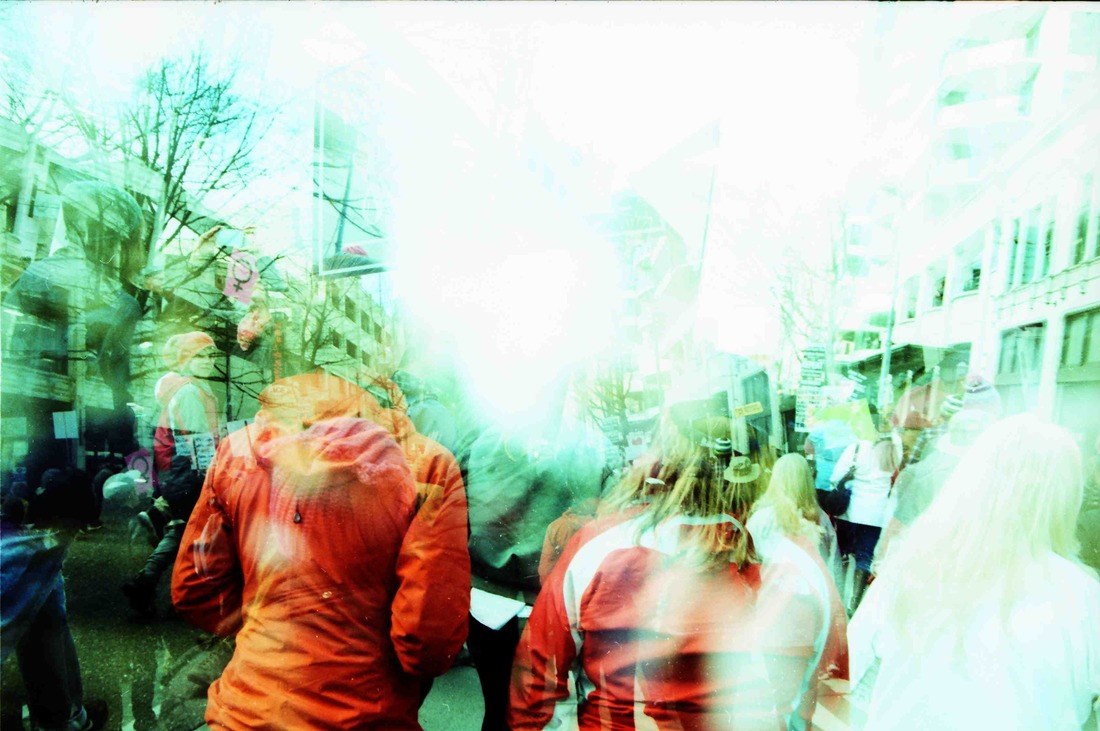
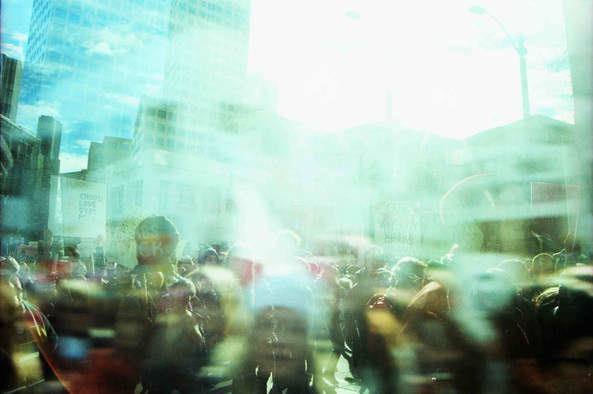
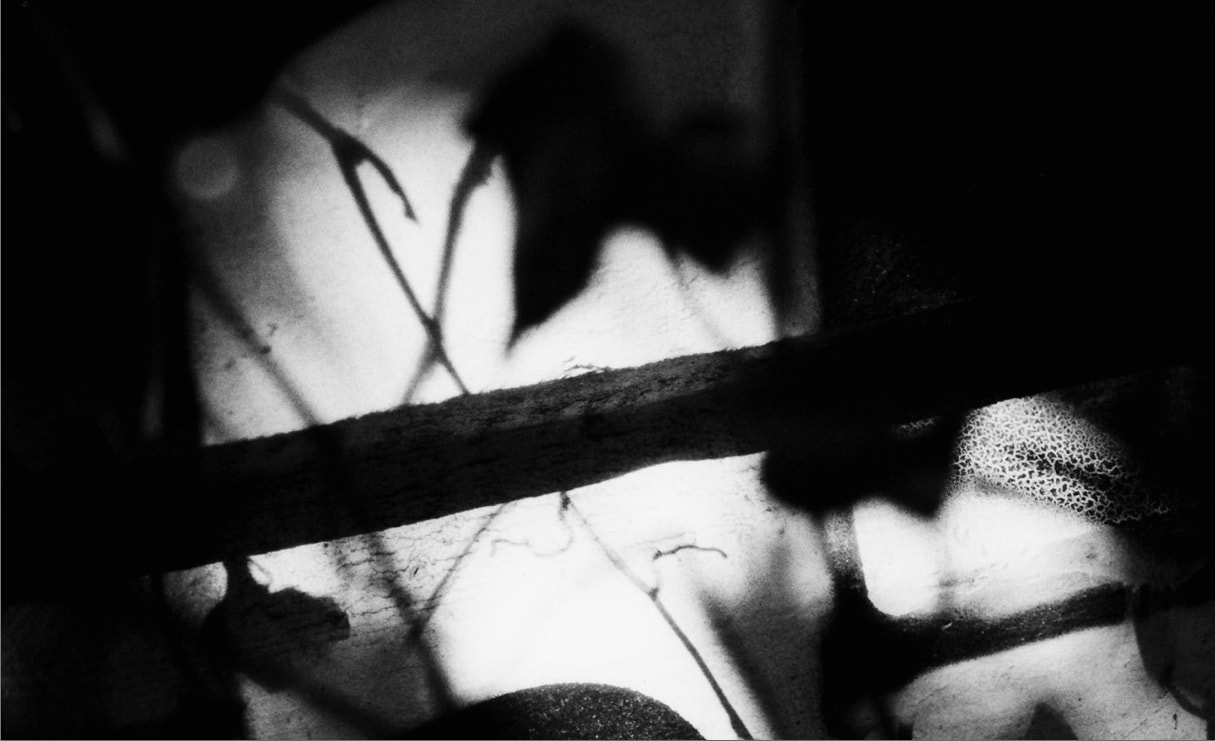
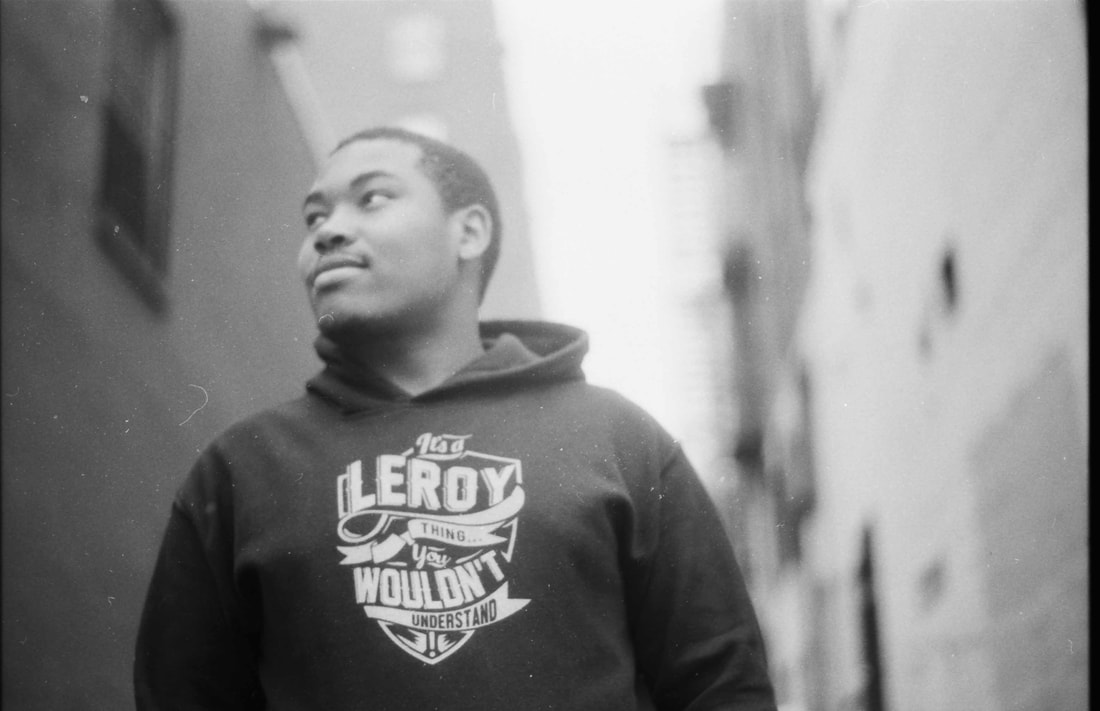
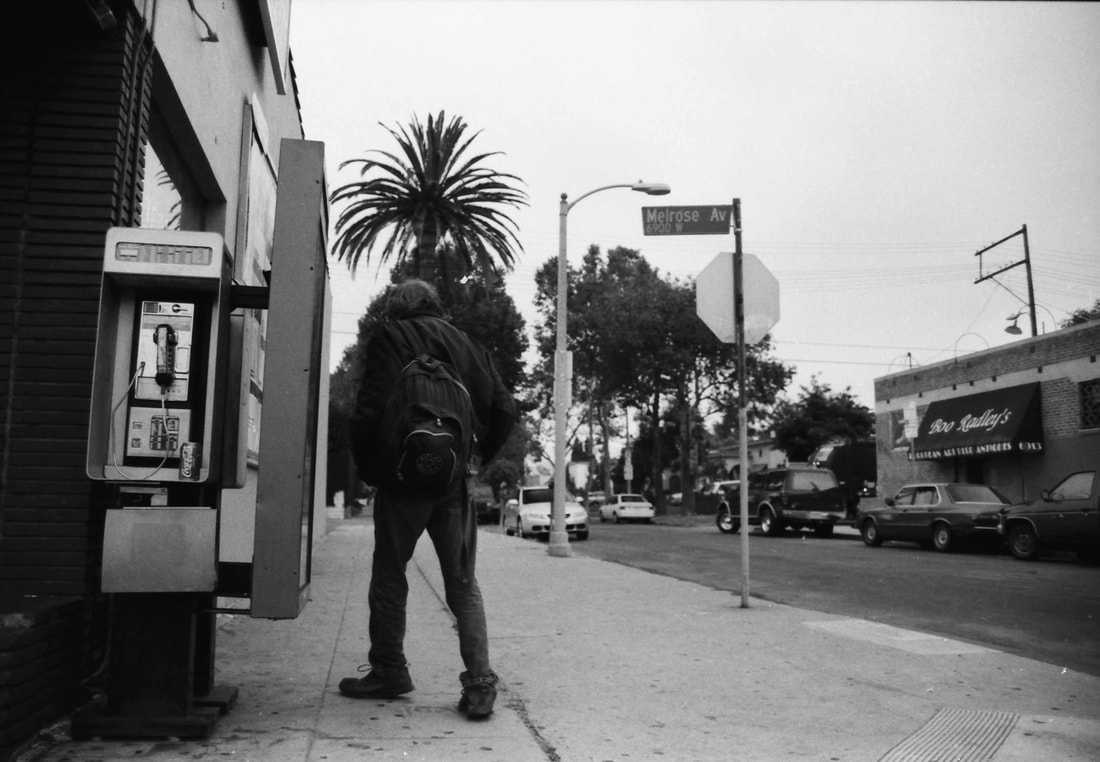
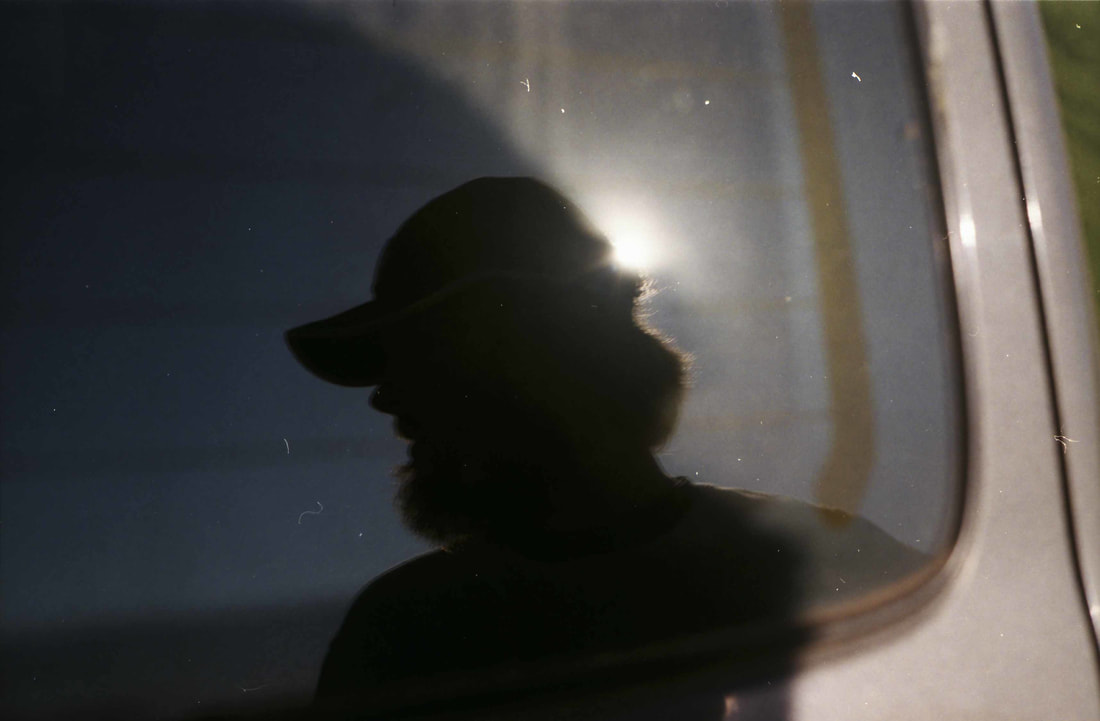
 RSS Feed
RSS Feed
